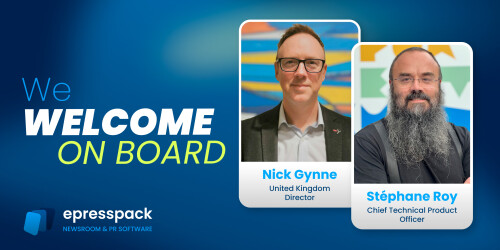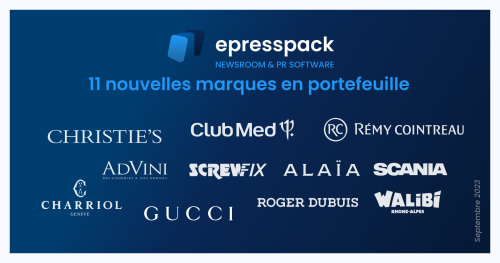In the era of information overload, and given the profusion of existing PR channels (wires, newsroom, WhatsApp loops, Twitter, etc.), how do you effectively address the media, influencers, and other stakeholders?
The speed with which information spreads, whether true or false, is a major issue for companies often in a state of alert or crisis. The other challenge in the current information chaos is emergence. How can we ensure the visibility of our message in this continuous flow of news and increasingly competitive discourse? How can we ensure credibility in a world where alternative truths are emerging? This gives increasing importance to content and information distribution strategies, and therefore to the choice of technological solutions.
Do the new ways in which information is consumed and over-abundant have an impact on your business as a newsroom and PR software publisher?
PR tools are becoming more professional. In the 2000s, we enjoyed a great deal of freedom when it came to disseminating information, and mailings were massive. We bombarded all the media with the same story at the same time and the same place. The success of an announcement was linked to the number of contacts and the volume of fallout. Today, we’re adopting a finer, more complex multi-channel approach, with more qualitative content. It’s all about disseminating information from different angles, with different hooks, different temporalities and on different channels to reach fragmented and highly diversified audiences. We will continue to use the press release format, which remains a major tool in the production of information, but we will enrich it and make it easier to access and share. We’ll also continue to use direct email, but to address 200 hand-picked recipients rather then 4,000!
What technological solutions have you put in place to meet these challenges?
At Epresspack, we support these changes through our own developments and alliances, such as with AFP and the MediaConnect community newsroom. Our technological solutions are turnkey, meaning that they enable us to manage and monitor campaigns from start to finish, as well as carry out precise targeting and tailor messages to specific themes, channels, and audiences. We’ve also integrated innovative functionalities such as blockchain to protect information and fight fakenews. And all from a single command center. In fact, we’re working hard to offer efficient yet easy-to-use tools that enable com teams to increase productivity and monitor project management wherever they are.
What about your customers? Are they aware of these new uses, and have they shown any interest in adapting to them? And in what way?
Expertise evolves at the pace of technological innovation, and communications departments are constantly monitoring their business and industry practices. Many have realised that technology has become a prerequisite for content strategies. Because what's the point of a good message if it can't be accessed and downloaded in 2 clicks on all devices? What's the value of a press release if it's not attractive in form, with photos and videos? What's a campaign worth if you don't know which journalist opened the press release so you can contact them? How else can we tell a story than by behaving like a media outlet, with editorialised news, long-term archiving, subscription offers and a seamless reading experience? Technology is an ally that and resolve many constraints, such as the scarcity of human resources in management.
The upheaval of generative AI has raised fears in some professions. What about PR? What are your customers thinking?
AI will influence all professions and industries, and the PR world won’t be able to escape it. It will have to adapt, find its place, and make sure that the technology doesn’t give birth to a world of widespread misinformation and a loss of bearings. We’re on the cusps of major upheavals, like those we experienced when the printed press was invented, or in the fields of genetics and robotisation. Rule will have to be established, even if it won’t be easy.
What about you? Have you used or are you planning to use AI at Epresspack?
At Epresspack, we don’t use AI for ma y reasons, because it’s not yet adapted to the programming language. But we are looking closely at its uses, particularly in analysis assistance.
More generally, what do you think? Between those who express fears and others who see it as an opportunity, where do you stand?
This innovation, like all innovations before it, will depend on how it is used. To date, it’s still a statistical tool that imitates us and spits out knowledge, but it’s not technically intelligent. Properly mastered, it will be beneficial in the fields of expertise, science, and medicine… Poorly used, it can be malicious and irresponsible. As far as I’m concerned, I’m in favor of reasoned, supervised approach, in the service of progress, even if this notion is fraught with controversy.
To read the original interview by MediaConnect's Hugues Dago click here.






